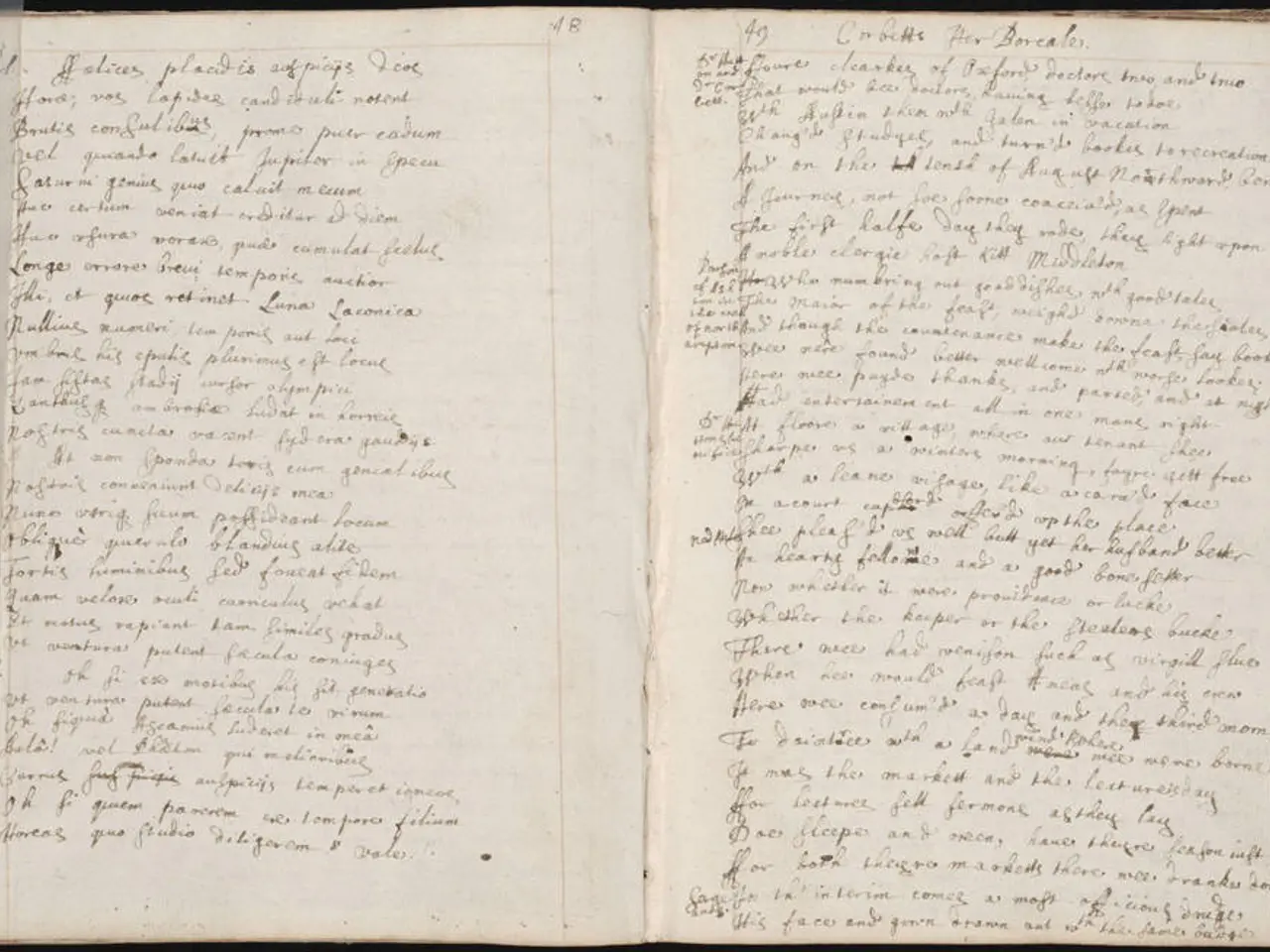Quantum physics: A century-old dispute continues among scientists regarding its true definition
In the world of physics, one of the most intriguing debates continues to unfold: the interpretation of quantum mechanics. This branch of science, which describes the behaviour of nature at the smallest scales, has been the subject of much discussion since its inception.
The debate was sparked by the groundbreaking work of Max Planck, who proposed in 1900 that energy comes in discrete packets, or "quanta." This idea was further extended by Albert Einstein in 1905, suggesting that light itself is made of particles - photons.
One of the most widely taught interpretations is the Copenhagen interpretation, which suggests that opening the box creates reality and quantum mechanics describes what can be known through measurement. However, it is criticized for an unclear dividing line between quantum and classical realms, prompting alternative interpretations.
One such interpretation is the many-worlds interpretation (MWI), which posits that all possible measurement outcomes occur in branching parallel universes. This interpretation, which avoids wavefunction collapse, has gained notable support, with around 15% of quantum physicists expressing their preference in a recent survey. However, it is challenged by the ontological extravagance of countless unseen universes and difficulties in deriving the Born rule probabilities purely from unitary evolution.
Bohmian mechanics reintroduces determinism and realism via "pilot waves" guiding particles, preserving a single objective reality. It retains a minority of physicists' support, with around 7% endorsing this interpretation. However, it faces issues with instantaneous effects faster than the speed of light.
Spontaneous collapse theories, which modify quantum mechanics to include random collapses of the wavefunction independently of measurement, aim to solve the measurement problem physically. Despite their testability, they attract relatively low endorsement, partly due to the challenge of experimental confirmation.
Epistemic interpretations, viewing the wavefunction as information or knowledge rather than a direct description of reality, have seen increasing acceptance. These interpretations weaken a strong ontological realism but offer a more information-theoretic and operational perspective on quantum states, shifting focus to knowledge and observers rather than objective collapse or parallel worlds.
Beyond these, interpretations like the relational interpretation offer an approach where quantum states are always relative to other systems, challenging the idea of an absolute objective reality.
Despite these disagreements, a majority of respondents (86%) believe that interpretation is a valuable endeavour and that quantum theory will eventually be replaced by a more complete framework. This belief highlights the ongoing quest for a deeper understanding of the quantum world, a world governed by probabilities, uncertainty, and phenomena that defy everyday intuition.
The heart of these disagreements lies in the question of what happens when you observe a quantum system. Some hope experiments might help settle the interpretations, while others believe quantum computing will play a role. The classic example of Schrodinger's cat, a cat trapped in a box, existing in a superposition of both life and death until someone opens the box and observes the outcome, continues to serve as a thought-provoking illustration of these complexities.
In sum, while the Copenhagen interpretation retains dominance due to pedagogical tradition and pragmatic coherence, alternatives like many-worlds, Bohmian mechanics, spontaneous collapse, and epistemic views each attract growing and varying levels of support with distinct ontological commitments and explanatory styles, ensuring the interpretational debate remains a vibrant and unresolved foundational issue in quantum physics.
This ongoing debate was the focus of a recent gathering on the German island of Heligoland, where quantum physicists gathered to discuss and debate the various interpretations. A survey conducted by Nature showed that while quantum physicists are confident in the field, they disagree on interpretation. For example, Anton Zeilinger, a Nobel Prize-winning physicist from the University of Vienna, declared that quantum states exist only in our heads, a statement that was met with disagreement by Alain Aspect, another Nobel Prize-winning physicist.
As the field of quantum physics continues to evolve, it is clear that the interpretation debate will remain an active area of research. The practical implications of this debate extend to areas such as quantum computing and probing the nature of black holes, making the resolution of this debate all the more important. Despite the disagreements, most respondents agreed that interpretation is worth pursuing and that physics describes what happens in the universe, not necessarily why it happens.
- The ongoing debate in the field of physics, particularly quantum mechanics, surrounds the interpretation of quantum mechanics, a branch of science that describes nature's behavior at the smallest scales.
- One alternative interpretation to the Copenhagen interpretation is the many-worlds interpretation (MWI), which proposes that all possible measurement outcomes occur in branching parallel universes.
- Beyond interpretations like Copenhagen and many-worlds, others, such as Bohmian mechanics and epistemic views, each have distinct ontological commitments and explanatory styles, ensuring the interpretational debate remains a vibrant and unresolved foundational issue in physics.
- The resolution of the interpretation debate in quantum physics holds significant implications for areas like quantum computing, probing the nature of black holes, and other technological advancements in the realm of science.
- The ongoing disagreements among quantum physicists regarding interpretation underline the importance of education and self-development within the scientific community, as new technologies continue to evolve and push the boundaries of our understanding.




